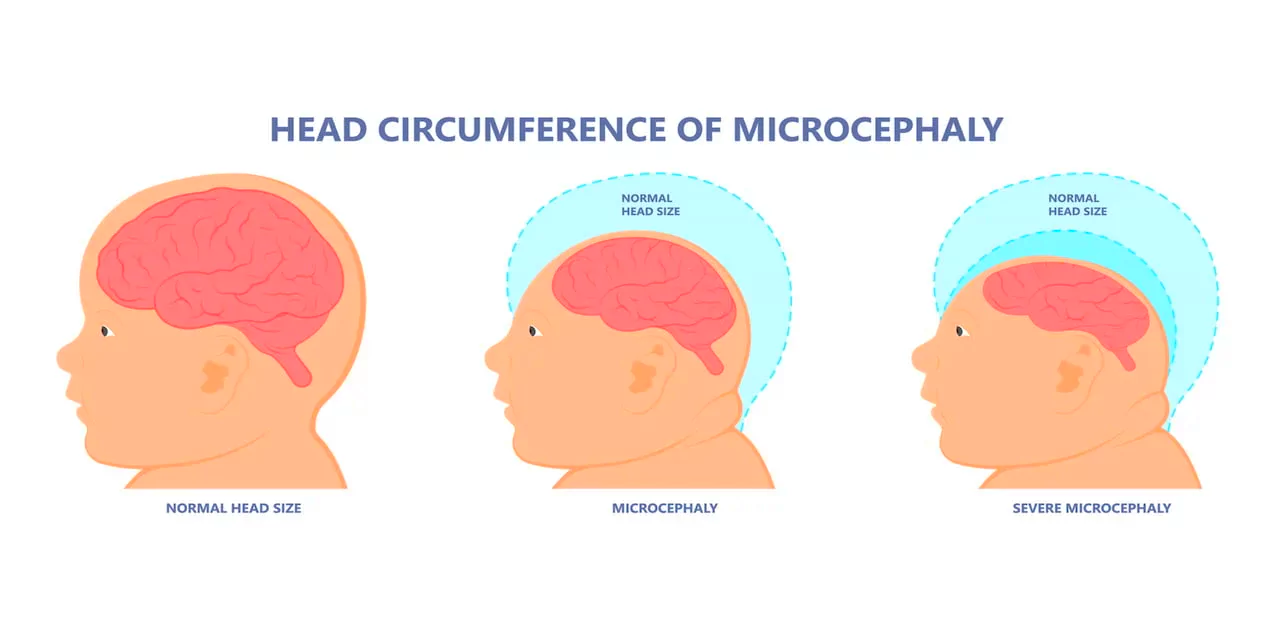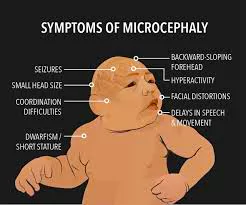A gene called SaSS6 and its variants, implicated in the developmental process of an embryo is likely to cause microcephaly.
Implications of SASS6 Gene Variants in Embryonic Development and Microcephaly
- The Chinese Study: Researchers at the Affiliated Maternity and Child Health Care Hospital of Nantong University, China, presented “The genetic findings of members of a nonconsanguineous Chinese couple with a history of microcephaly and foetal growth restriction during their first pregnancy”.
- Published In: The paper was published in the American Journal of Medical Genetics.
- Finding:
Enroll now for UPSC Online Course
SASS6 Gene:
- SASS6 (SAS-6 Centriolar Assembly Protein) is a Protein Coding gene.
- Discovery: Researchers discovered the SASS6 gene in the roundworm Caenorhabditis elegans in a study conducted in 2004.
- They found that the protein that cells made using this gene was conserved across animals, meaning natural selection allowed this protein to exist in all members of the animal kingdom.
- The SASS6 gene encodes a protein that has 657 amino acids. This protein assembles new centrioles during the cell division process.
- The genes contain instructions for cells to make structures called centrioles
- Diseases associated: Mutations in SASS6 cause diseases like Microcephaly 14, Primary, Autosomal Recessive and Primary Autosomal Recessive Microcephaly.
- Mutation causing Microcephaly: The researchers were able to describe the mutation correlated with microcephaly in a study of a consanguineous Pakistani family of which four members had microcephaly.
- The mutation is named, Ile62Thr, and is a result of the amino acid isoleucine at position 62 been replaced by threonine.
|
-
-
- The Result of the study reinforced the role of the SASS6 gene in causing microcephaly, and reveals an expanded view of the phenotype and mutation spectrum associated with this gene.
- If one copy of the SASS6 gene was non-functional, the other retained at least some function. The implication was that if both copies are non-functional, the human embryo dies before it becomes a foetus.
- The German Study: Researchers at the University of Cologne, Germany, in a study conducted this year reported,
- To have modified the mouse embryo-derived cells to remove all functional SASS6 genes
- Findings:
- Centriole: The cells were able to make passable, if also abnormal, centrioles even after the genes were removed.
- The Stage of Neuron development: At this point, when the cells were nudged to develop into neurons, all the centrioles made without using the gene’s recipe disappeared, and the cells couldn’t differentiate into neurons.
About Microcephaly
Microcephaly is a rare neurological condition in which an infant’s head is much smaller than the heads of other children of the same age and sex.
- Causes: Microcephaly usually is the result of a problem with brain development which can be caused by a variety of factors like,
 Consanguinity and genetic risk: A study on a clinic level has found that 70%+ cases of congenital microcephaly come from consanguineous marriages with greater the risk of an individual inheriting a mutated copy of a gene from both parents.
Consanguinity and genetic risk: A study on a clinic level has found that 70%+ cases of congenital microcephaly come from consanguineous marriages with greater the risk of an individual inheriting a mutated copy of a gene from both parents.
- Consanguineous marriages are conducted between closely related individuals, such as between uncle and niece or between first cousins.
- Genetic changes: Genetic mutations or an underlying genetic condition leads to disease like Down syndrome and microcephaly.
 Decreased oxygen to the fetal brain (cerebral anoxia): Certain complications of pregnancy or delivery can impair oxygen delivery to a baby’s brain.
Decreased oxygen to the fetal brain (cerebral anoxia): Certain complications of pregnancy or delivery can impair oxygen delivery to a baby’s brain.- Infections during pregnancy: Certain infections can be passed to the womb during pregnancy causing brain underdevelopment like, toxoplasmosis, cytomegalovirus, German measles (rubella), chickenpox (varicella) and Zika virus.
- Substance use disorder: Consumption of drugs, alcohol or certain toxic chemicals in the womb may affect fetal brain development during pregnancy.
- Uncontrolled phenylketonuria or PKU: Phenylketonuria (PKU) hampers the mother’s ability to break down the amino acid phenylalanine and may affect brain development of the fetus during pregnancy.
Enroll now for UPSC Online Classes
![]() 29 May 2024
29 May 2024
 Consanguinity and genetic risk: A study on a clinic level has found that 70%+ cases of congenital microcephaly come from consanguineous marriages with greater the risk of an individual inheriting a mutated copy of a gene from both parents.
Consanguinity and genetic risk: A study on a clinic level has found that 70%+ cases of congenital microcephaly come from consanguineous marriages with greater the risk of an individual inheriting a mutated copy of a gene from both parents.
 Decreased oxygen to the fetal brain (cerebral anoxia): Certain complications of pregnancy or delivery can impair oxygen delivery to a baby’s brain.
Decreased oxygen to the fetal brain (cerebral anoxia): Certain complications of pregnancy or delivery can impair oxygen delivery to a baby’s brain.